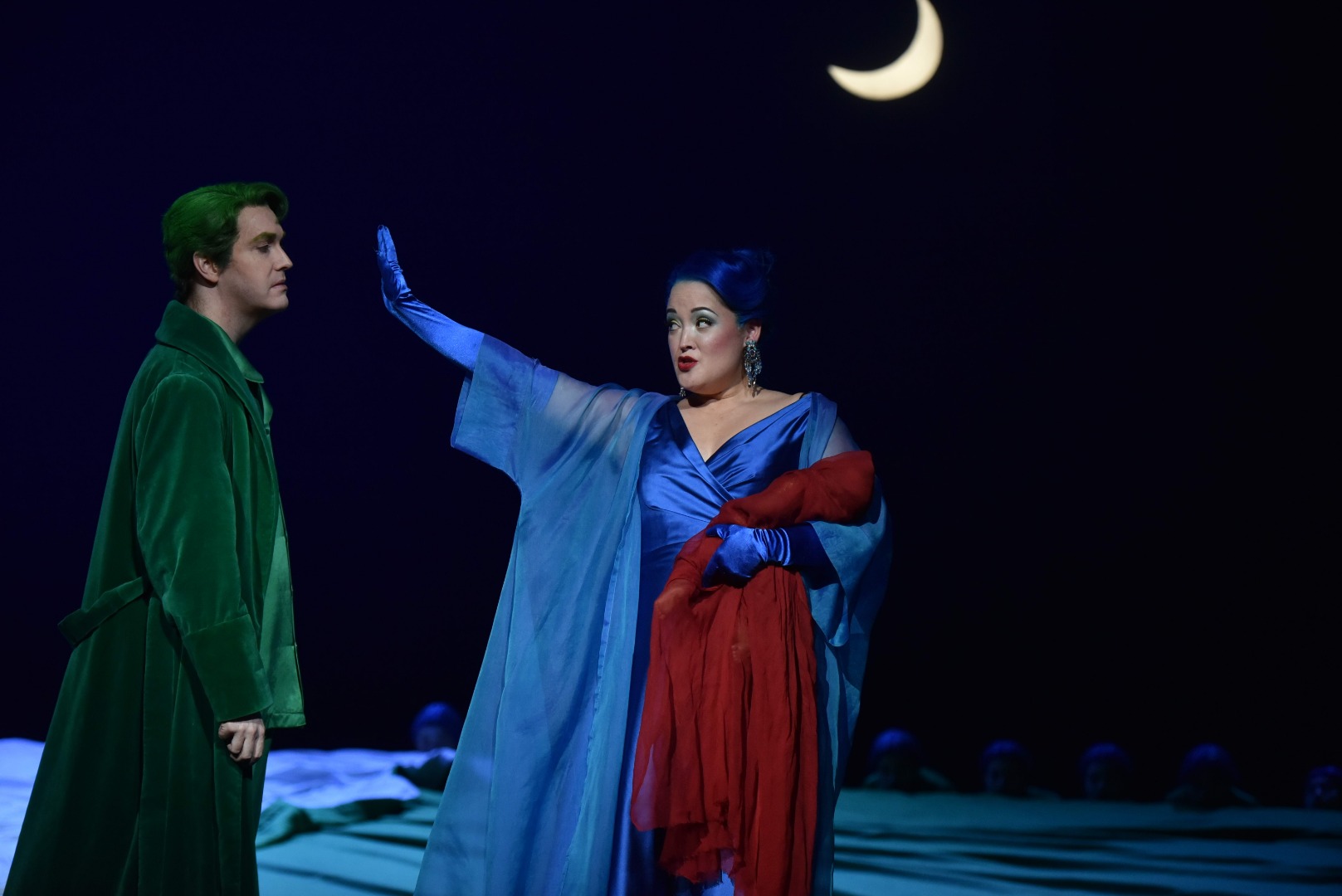
When New York Times critic Howard Taubman reviewed the 1960 premiere of Benjamin Britten’s opera, Midsummer Night’s Dream, he said: “In an age that has produced few operas that are ingratiating for singers, Mr. Britten’s latest effort should be a winner.”
Six decades later, Opera Philadelphia’s production of Robert Carson’s staging of the opera proves that Mr. Taubman was right. The music still sounds wonderfully imaginative and modern. The score uses fairy-like instrumentations of flute and piccolo –performed with delicate verve by David Cramer. Each act opens with strings, including the overture’s impressively soft pianissimo conducted by Maestro Corrado Rovaris. Britten’s orchestration also has beautiful woodwind solos and an intricate trumpet part played deftly by Bryan Kuszyk.
Countertenor Tim Mead (Oberon) and soprano Anna Christy (Tytania), veterans of their roles, performed together for the first time in this production and lit up the stage with their outstanding voices and acting. Mr. Mead’s pure countertenor is sometimes higher than Ms. Christy’s soprano, which is a tad unsettling, but the lushness of their voices brings out Britten’s beautiful vocal writing.
Fairy-crossed lovers Hermia (Siena Licht Miller), Helena (Gerogia Jarman), Lysander (Brenton Ryan), and Demetrius (Johnathan McCuullough) gave great performances of Britten’s beautiful duets and quartets, but they also had musical fun as the audience to the play-within-the-play by the lovably raucous rustics. Led by Bottom (a superb performance by bass Matthew Rose), their rendition of Pyramis and Thisbe was hilarious– just enough over the top to be fun.
Benjamin Britten wisely designated the role of Puck to be played by an acrobat and not a singer. Miltos Yerolemou was an irrepressible and mischievous sprite, leaping over walls, hill, and dale, providing the broad humor the play requires.
The Philadelphia Boys Choir fairy chorus was impeccably directed by chorus master Elizabeth Braden, and Tytania’s voice meshed with their focused soprano voices with fairy-like lightness.
Hats off to flyman Mike Ruffo and his crew for making beds rise and fall by fairy magic (and to Mr. Rovaris and the orchestra for making the music match the stage acrobatics). The mesh between staged effects, superb singing, and an orchestra that managed to hit every cue made for a tight and delightful performance.
Although Mr. Taubman praised the opera as a ‘winner’, it is rarely produced because of the daunting cost and effort to make it a success. Opera Philadelphia has been courageous enough to invest in everything needed to make this a performance of the first caliber.
[Opera Philadelphia presents Benjamin Britten’s Midsummer Night’s Dream at the Academy of Music, 240 South Broad Street] February 8-17, 2019; operaphila.org
